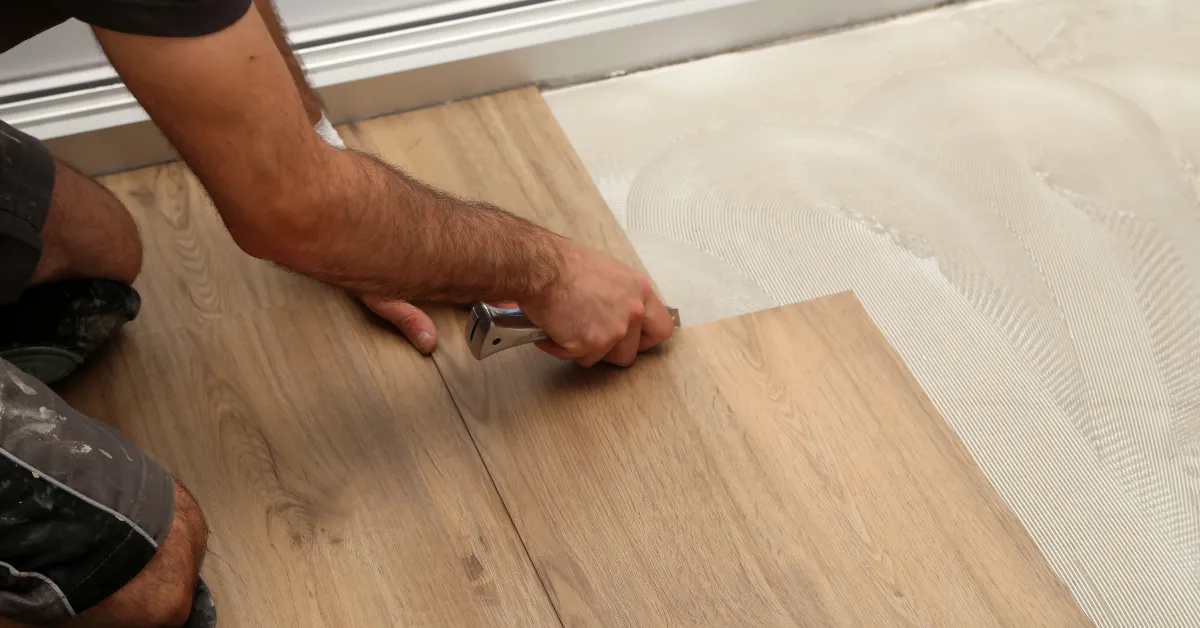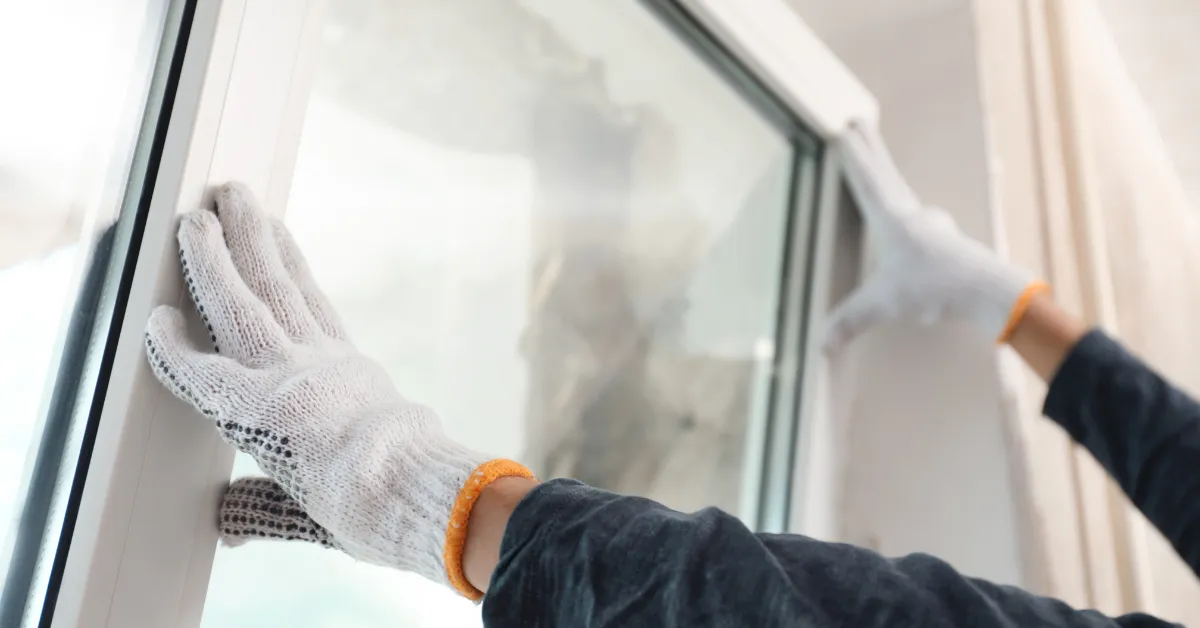What is the Best Flooring for Rental Property? Top Picks
The best flooring for rental property is typically durable luxury vinyl or tile. These materials withstand tenant wear and tear while offering a modern aesthetic.
Selecting the right flooring for rental properties is crucial to balancing cost-efficiency with durability. Property owners often favor luxury vinyl because it replicates the appearance of hardwood or stone without the high price tag and maintenance.
Tile, on the other hand, is favored for its robustness in high-moisture areas like kitchens and bathrooms.
Both materials are resistant to scratches and stains, making them ideal for high-traffic rental spaces. Easy to clean and maintain, luxury vinyl and tile can endure the demands of various tenants, ensuring the property remains attractive for prospective renters.
Their longevity helps landlords save money in the long term, reducing the frequency of flooring replacements.

Durability Meets Affordability
Finding the right balance between durability and affordability in rental property flooring is key.
Property owners want floors that can withstand wear and tear without breaking the bank. Let’s explore features that matter most when picking the perfect flooring solution for rentals.
Traits Of Ideal Rental Flooring
What makes rental flooring stand out? It’s the combination of toughness, ease of maintenance, and timeless style. Ideal rental flooring should:
- Resist scratches and dents from daily use.
- Handle spills and stains without needing special treatment.
- Require minimal upkeep, cutting down on cleaning costs.
- Suit various decor styles to please a wide range of tenants.
- Last many years, avoiding frequent replacements.
Cost-effectiveness Over Time
Investing in cost-effective flooring pays off long-term. The initial price tag matters but think beyond purchase costs. Durable, low-maintenance options can save money over time. Consider these factors:
| Factor | Explanation |
| Lifespan | Floors that last longer reduce the frequency of expensive replacements. |
| Maintenance | Opt for floors that clean easily and seldom need repairs. |
| Material | Choose tough materials that go easy on your budget. |
Invest wisely in flooring that stands the test of time and use, ensuring your rental property remains both attractive and functional.
Popular Flooring Types Analyzed
Choosing the perfect flooring for a rental property can be a tough decision. The right choice needs to be durable, cost-efficient, and appealing to potential tenants.
Understanding the pros and cons of popular flooring types is essential for making an informed choice. Let’s dive into the details.
The Case For Hardwood
Hardwood floors stand the test of time, both in durability and style. Tenants love the elegant look and homeowners appreciate the longevity. Here’s why hardwood might be the prime choice:
- Long-lasting: With proper care, hardwood can last decades.
- Boost property value: Hardwood floors can increase a home’s worth.
- Easy to refurbish: You can sand and refinish instead of replacing.
Laminate Flooring Advantages
Laminate flooring offers a budget-friendly alternative to hardwood. It’s easy to install and maintain. Below are benefits to consider:
- Resembles hardwood at a lower cost.
- Resistant to scratches, perfect for high-traffic areas.
- Simple cleaning with minimal effort.
Why Consider Carpet?
Carpet is a popular option for bedrooms and living areas. It provides warmth and comfort, which can be inviting for renters. Points to note about carpeting:
- Sound dampening: Reduces noise levels in multi-storey rentals.
- Cosy underfoot: Makes spaces feel homely.
- Variety of styles: Fits various decor themes.
Vinyl: A Versatile Choice
Vinyl flooring gives you flexibility in design and function. It’s a durable and water-resistant option that suits many rental properties. Advantages of vinyl include:
| Feature | Benefit |
| Water Resistant | Great for kitchens and bathrooms |
| Durable | Withstands heavy foot traffic |
| Cost-Effective | Affordable choice for landlords |
Flooring That Stands The Test Of Time
Smart rental property owners know that durable flooring is not just an option, but a necessity.
Flooring That Stands the Test of Time needs to withstand frequent tenant turnovers.
The ideal choice is one that combines durability with timeless appeal.
Wear And Tear Resistance
Durability is key in rental properties. High-traffic areas require tough materials that can resist scratches and scuffs.
- Laminate – Simulates wood, resists scratches.
- Vinyl – Waterproof, ideal for kitchens and bathrooms.
- Ceramic tile – Handles heavy use, easy to clean.
Avoid carpet as it stains easily and shows wear quickly!
Maintenance And Longevity
Flooring in rentals needs minimum upkeep for maximum lifespan.
Choose floors that tenants can maintain easily, which in turn extends their longevity.
| Material | Maintenance Level | Expected Longevity |
| Tile | Low – Regular mopping | 20+ years |
| Laminate | Low – Sweeping and spot cleaning | 15-25 years |
| Vinyl | Low – Sweeping and mopping | 10-20 years |
Properly installed, quality flooring can save time and money in the long run.
Tenant Appeal And Market Trends
Choosing the right flooring for a rental property can make or break its appeal. A floor that balances durability, cost-effectiveness, and style holds the key to attracting potential tenants.
Keeping an eye on market trends ensures your rental remains competitive and desirable.
Attracting Tenants With Style
Style is a decisive factor for tenants.
Fashion-forward flooring can set a property apart. Modern aesthetics combined with practicality are in high demand.
Selections that mimic high-end materials, such as luxury vinyl mimicking hardwood, offer affordability while still oozing sophistication. Trendy patterns and colors can also elevate a space, serving as a strong leasing point.
What Renters Want In Flooring
Renters look for flooring that suits their lifestyle.
- Easy to Clean – A must for busy tenants.
- Durability – Resistance to scratches and dents is key.
- Comfort – Soft underfoot, especially in bedrooms.
- Health – Hypoallergenic options are a plus.
- Eco-friendly – Green materials are increasingly popular.
Flooring options like vinyl, laminate, and tile meet these needs. They are resilient, maintainable, and come in a variety of styles.
Staying informed about the latest flooring trends is essential. It ensures your rental’s flooring charms and meets the expectations of today’s renter.
Installation And Replacement Considerations

Considering installation and replacement is vital when choosing the best flooring for a rental property. Owners need flooring that doesn’t demand complex skills or specialized tools for installation.
This cuts down on labor costs and time. Moreover, selecting durable and easily replaceable flooring is essential to maintain appeal over time without frequent financial outlays.
Ease Of Installation
The installation process impacts your selection greatly. Some floorings snap together, like laminate planks or luxury vinyl, making for a swift, simpler process. Others, like tile or hardwood, require more skill and time. Consider the following for an easy install:
- Durability versus installation complexity
- Tools required
- Availability of pre-cut materials
- Presence of a locking mechanism for a floating install
Easier installation means lower costs and a quicker turnaround between tenants.
When To Replace Flooring
Knowing when to replace flooring is just as important as the initial install. Signs that flooring needs replacing include:
- Visible wear and tear
- Stains that won’t clean off
- Persistent odors, especially from pets
- Outdated style that lowers rental appeal
Plan replacements during vacancy periods. This minimizes income loss. Keep in mind that durable materials reduce frequency of replacements. Aim for a balance between resilience and cost-effectiveness for long-term profitability.
Frequently Asked Questions On What Is The Best Flooring For Rental Property
What Type Of Flooring Is The Best Return On Investment?
Hardwood flooring typically offers the best return on investment for homeowners. It’s desirable for its durability, timeless appeal, and ability to increase property value.
What Are The Disadvantages Of Vinyl Plank Flooring?
Vinyl plank flooring can be susceptible to scratches and dents. It may emit volatile organic compounds (VOCs), has a shorter lifespan than hardwood, and can fade with prolonged UV exposure. Its water-resistance doesn’t equal full waterproofing. Repairing can also be more complex than other flooring types.
Is Vinyl Sheet Flooring Good For Rental Property?
Yes, vinyl sheet flooring is suitable for rental properties due to its durability, ease of maintenance, and cost-effectiveness. It’s also water-resistant and comes in various designs.
What Is The Most Durable Type Of Floor?
The most durable flooring option is ceramic or porcelain tile, known for its resilience and longevity.
Conclusion
Choosing the right flooring for a rental property is essential for durability and appeal. Consider cost, maintenance, and tenant preferences.
Vinyl, laminate, and tile stand out as smart choices. Your investment reflects in the longevity and satisfaction a well-chosen floor brings.
Balance practicality with aesthetics for the best results.
Reference:
https://housing2.lacity.org/rental-property-owners/building-codes-and-standards